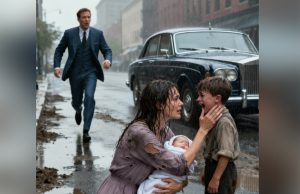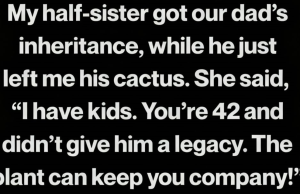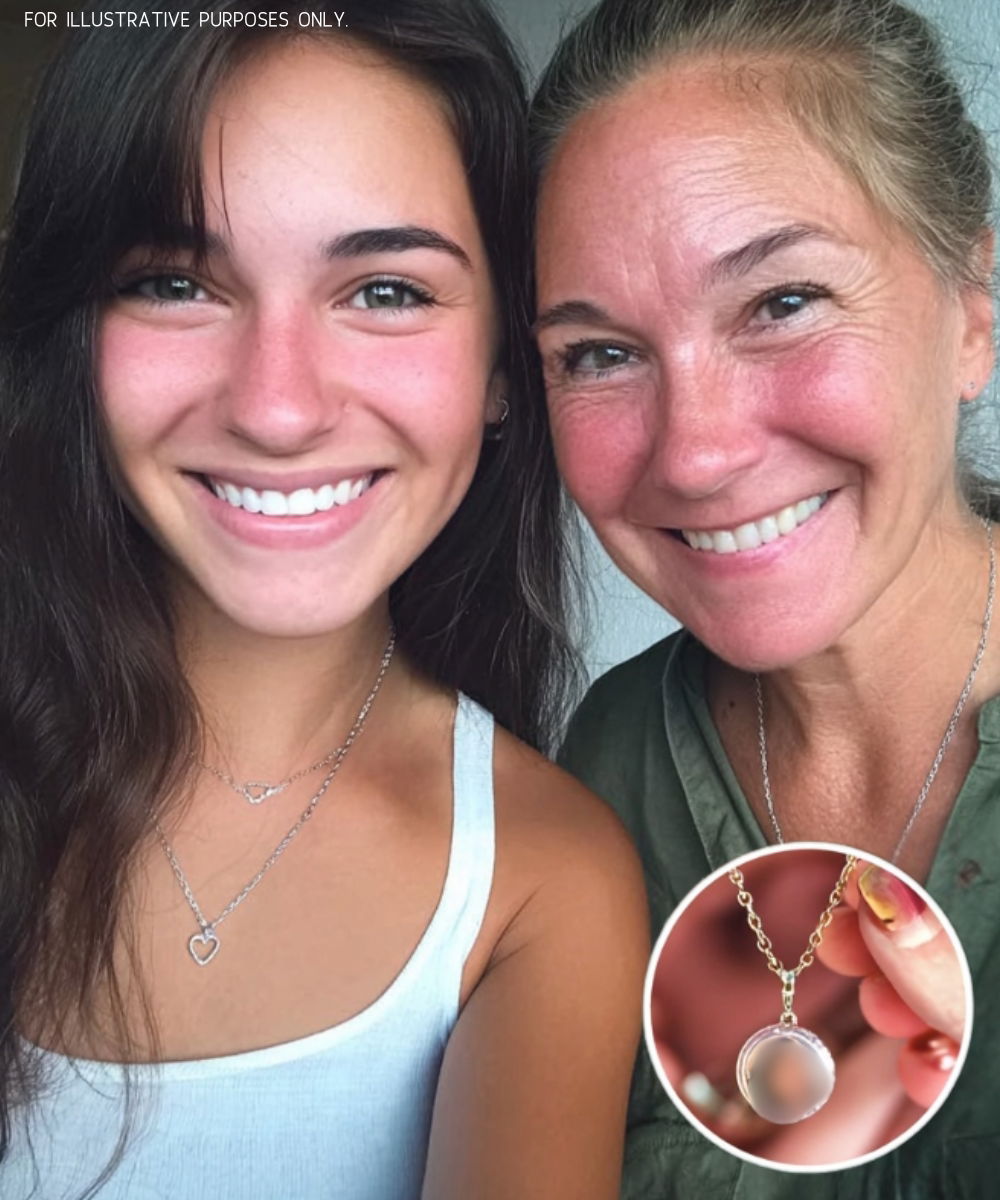
I was thirty-five, unemployed, and carrying a résumé so awkward even I’d stopped believing in it.
From a once-successful designer, I’d turned into someone who couldn’t get past the first interview round.
“You’ve got solid experience… and this is… what, a speech issue?”
“It’s just a stutter,” I wanted to explain, but usually I only nodded. My thoughts always moved faster than my mouth could follow.
The stuttering had started three years earlier, the day my mother left and never came back. She’d simply said:
“I’ll be back soon, sweetheart. Just need to… clear my head.”
And then she vanished. No note, no call.

I searched the neighborhood, phoned hospitals, walked the forest line by the bridge, and filed a missing person report.
Time moved on, but I stayed stuck between that abandoned half-eaten pie and the phone that never rang.
My friend Rachel tried to pull me out of that haze whenever she visited.
“You have to do something. Anything. Take one step. Go for a jog. It’s not about your body — it’s about your mind. Start tonight.”
“They say there might be a storm,” I whispered, scanning weather updates on my laptop.
“People run in rain, heat, snow. What’s stopping you?”
So there I was, standing on the doorstep, staring at a sky heavy with dark clouds.
“This is only wind,” I told my reflection in the hall mirror. “If I skip today, I’ll never start. So I’m going.”
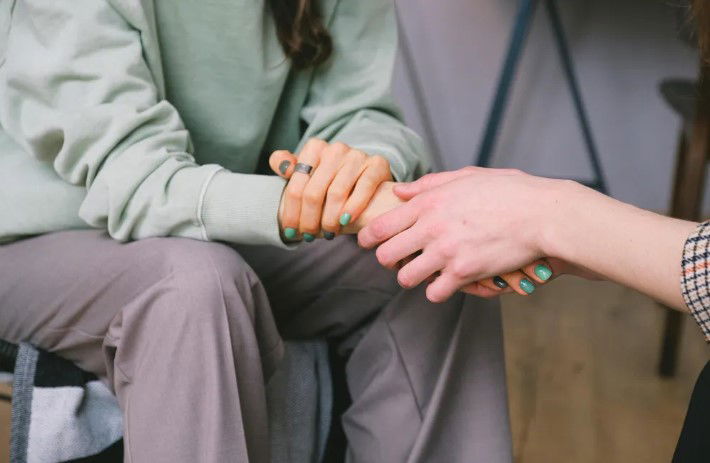
I stepped outside. The street was nearly deserted. I began to run — clumsy, slow, but running nonetheless.
I passed shuttered cafés, dim alleys, and the neglected playground.
Then something made me stop.
A small girl sat alone on a swing, no older than three, wearing a thin jacket. Her legs didn’t reach the ground, so she rocked gently.
Why was she here alone?
I approached her slowly, even though I wasn’t great with kids.
“H-h-hi there, s-s-sweetie…”
She looked up, studying my stutter with quiet curiosity.
“A-a-are you alone?”
She gave a tiny shrug. I looked around — not a soul. The swing creaked, and the wind grew stronger.
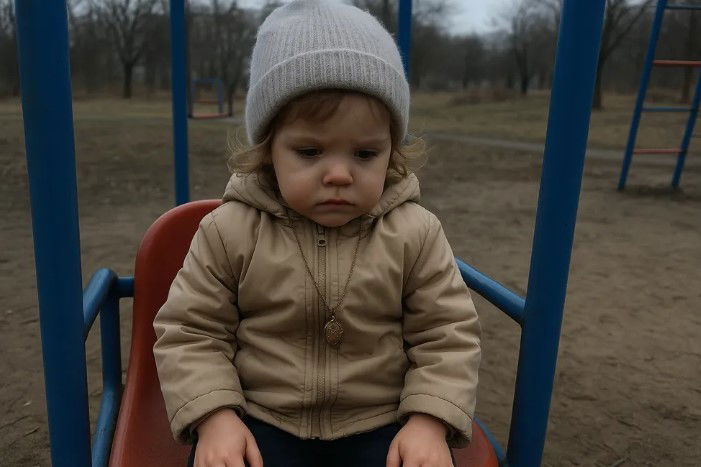
“I don’t want to frighten you,” I said, crouching to her eye level. “But you can’t stay here. It’s dangerous.”
She shifted a bit.
“What’s your name? I’m Emily.”
“Mia,” she murmured.
Then the wind howled, rattling the light overhead until it flickered and went out.
“Mia, we need to leave. I have cookies at home. And milk. Would you like some?”
“Great. Come on, sweetheart.”
I lifted her gently from the swing, offered my hand, and she took it trustingly.
We began walking when a sharp crack sounded behind us. I turned to see a tree shifting dangerously. Mia squeezed my hand, eyes wide.
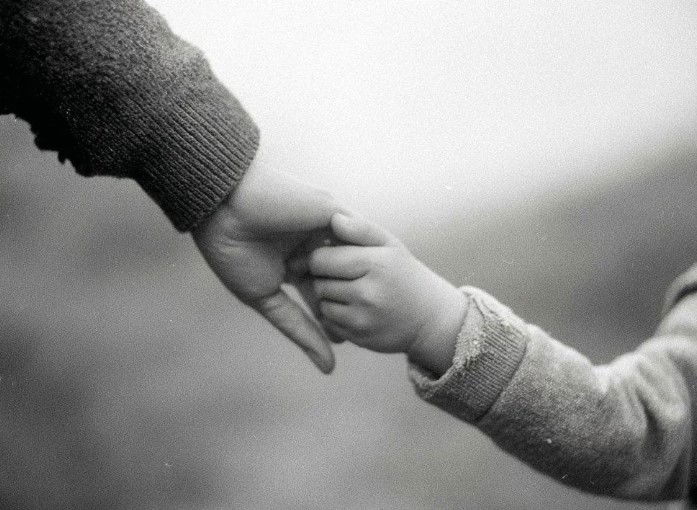
“Run!”
We tore across the park just as the rain began to pour. I scooped Mia into my arms, still running.
That’s when I noticed the locket around her neck, peeking from under her jacket. My mother’s locket.
I stopped for a moment, stunned.
“Where did you get that?”
Mia stared at me, scared to answer.
“Mom…”
I hugged her tighter and ran again, my thoughts spinning wildly.
Mom, what did you leave behind?

By the time we made it home, we were soaked. I dropped the keys, breathing hard.
“Sorry. I… I usually don’t have guests.”
Mia just looked at me, trusting, as I unzipped her jacket.
The locket shone under the light, stabbing me with memories I couldn’t process yet.
“Let’s get you warm,” I said, more to myself than to her.
I wasn’t a mother, never even good with kids, and barely had any supplies. One saucepan, two plates, a frozen pizza, and a nearly empty fridge.
I called emergency services.
“I found a little girl alone in the park. She’s wearing a locket.”
They took my address but warned me the storm had delayed all responders.

“Keep her safe indoors until further notice.”
“How long?”
“We’ll notify you once we can dispatch.”
Click.
“Well,” I sighed, turning to Mia, “It’s you and me tonight. Hungry?”
She nodded. I pulled out the frozen pizza and offered her a worn blanket. Mia carefully removed her damp socks like she’d done it many times before.
“You okay?”
She nodded again.
I rummaged in my closet for old toys, a ragged teddy bear, and some soft pajamas. Childhood leftovers I’d never thrown away. I laid them out for her.
“Not much, but it’s what I have.”
After eating, Mia yawned so hard I thought her jaw might break. I made her a cozy bed on the couch.
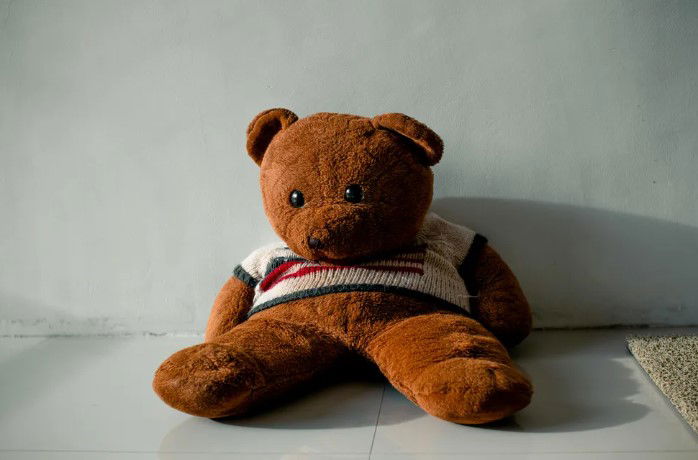
“You’re safe here, Mia.”
She curled up with the teddy bear, trusting, and fell asleep.
I opened her locket carefully. On one side was a photo of me and Mom from years ago. On the other — Mia’s portrait.
My chest felt like it would cave in.
How could that be?
I snapped it shut, put it back on Mia, and sat staring into the night.
The phone rang at five a.m., jerking me awake.
“CPS here, we’re nearly at your address.”
I opened the door to find two caseworkers — and behind them, my mother. Older, gray-haired, eyes distant, but it was her.
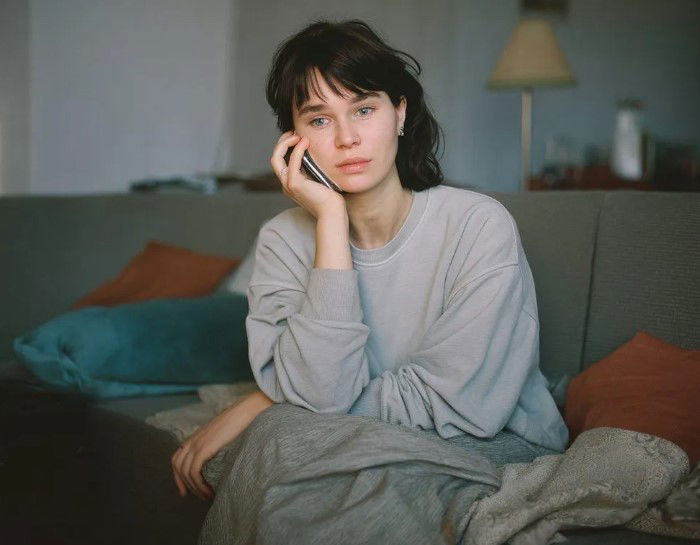
“She’s my mother,” I stammered.
The worker explained Mom’s advanced Alzheimer’s. She’d been cared for by someone who died, then left alone with Mia.
When Mia saw her, she squealed “Mommy!” and ran to hug her.
Mom seemed to return for a moment, stroking Mia’s hair, whispering, “My sweet girl.”
The caseworker told me Mia had no legal guardian yet.
“I’ll take her,” I said. “She’s my sister.”
They nodded.
As they took Mom to a clinic, Rachel arrived with coffee. No questions, just a hug.
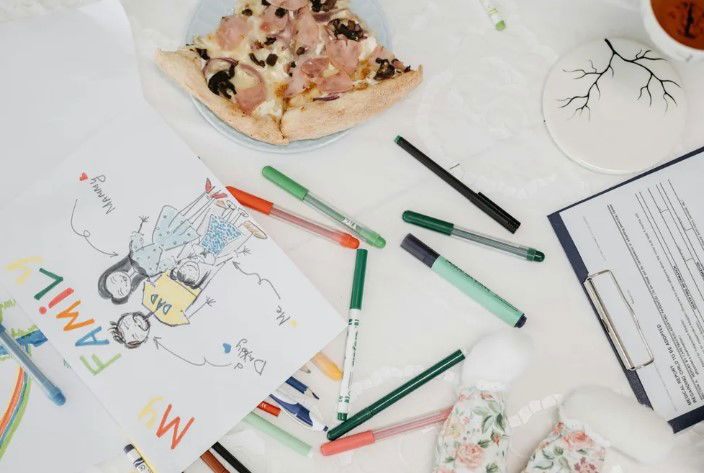
“I don’t know what I’m doing,” I confessed.
“You’re living again,” she said. “And you’ll figure it out.”
Together, we watched Mia, who peeked at me every few seconds to be sure I was still there.
I was.
The road ahead would be hard, but at least we could begin together.


